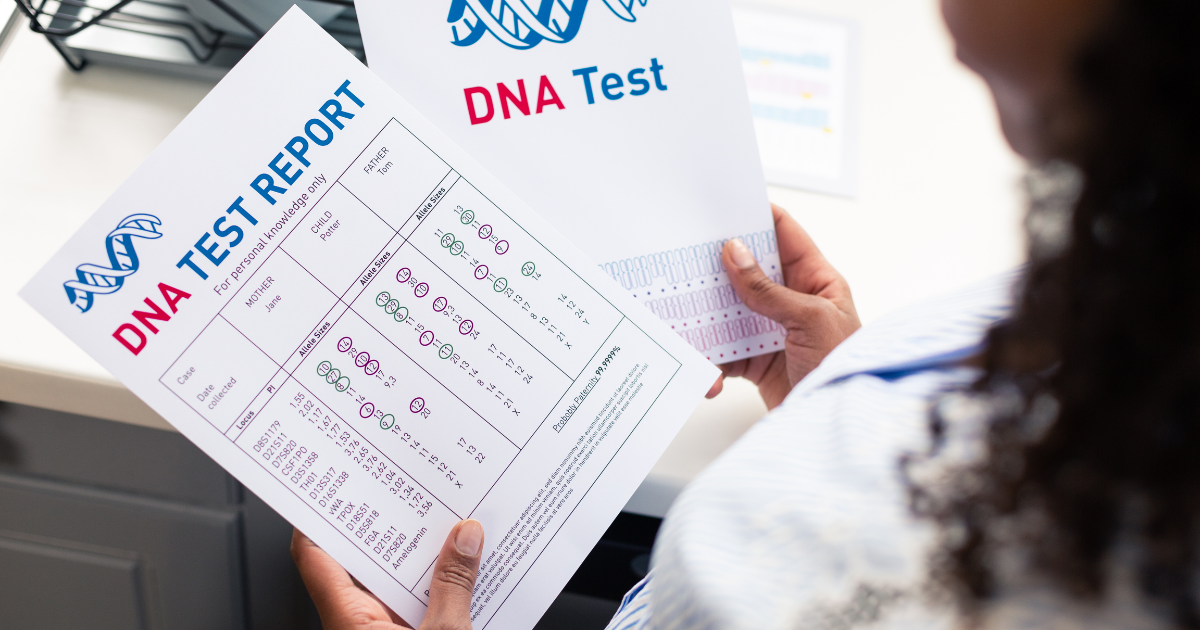DNA testing has become an invaluable tool for individuals seeking clarity on personal relationships, ancestry, and legal matters. However, understanding the distinction between legal and informational DNA testing is crucial to ensure that the results meet your specific needs.
At MedPhysicals Plus, one of the most common questions we hear is: What’s the difference between legal and informational DNA testing, and which one do I need?
Let’s break it down.
Understanding Informational DNA Testing
Informational DNA testing is used for personal knowledge and peace of mind. It’s most commonly used to explore ancestry or confirm biological relationships outside of legal contexts. These tests are often collected at home using cheek swabs and do not follow any identity verification protocols. That means the samples could technically be submitted by anyone, which is why the results are not admissible in court or other legal proceedings.
According to Validity Genetics, informational DNA tests are ideal for individuals who want to confirm paternity or siblingship without the need for legal documentation. However, because there’s no verified chain of custody, the results are for personal use only.
The Role of Legal DNA Testing
Legal DNA testing is required when results need to stand up in court or be submitted to a government agency. This process involves strict identity verification, in-person sample collection by certified professionals, and detailed documentation of every step, from sample collection to lab delivery.
Legal DNA tests follow a chain of custody protocol, which is what makes the results court-admissible. They’re used in a wide range of scenarios, including:
- Child custody or child support disputes
- Immigration applications
- Inheritance and estate claims
- Changes to birth certificates or legal records
A study by the American Association of Blood Banks (AABB) found that approximately 300,000 legal paternity tests are conducted in the U.S. each year, underscoring the increasing reliance on verified DNA testing in legal matters.
At MedPhysicals Plus, we provide legal DNA testing that meets all chain of custody requirements, and our staff is trained to ensure your samples are handled with complete accuracy and confidentiality.
Key Differences Between Legal and Informational DNA Testing
| Aspect | Informational DNA Testing | Legal DNA Testing |
| Purpose | Personal knowledge | Legal documentation |
| Sample Collection | Self-collected at home | Collected by certified professionals |
| Chain of Custody | Not established | Strictly documented |
| Court Admissibility | Not admissible | Admissible |
| Cost | Generally lower | Higher due to additional procedures |
Get Reliable DNA Testing with MedPhysicals Plus
At MedPhysicals Plus, we understand the importance of accurate and timely DNA results. Whether you’re seeking answers for personal reasons or require legally admissible documentation, our services are tailored to meet your needs.
Still unsure which DNA test is right for you? Don’t worry, we’re here to guide you every step of the way. Our team at MedPhysicals Plus can help you choose the right testing option and make the process smooth, discreet, and hassle-free.
To learn more about our DNA testing services or to book your appointment, contact the MedPhysicals Plus location nearest you.
Get the answers you need, with accuracy you can trust.

